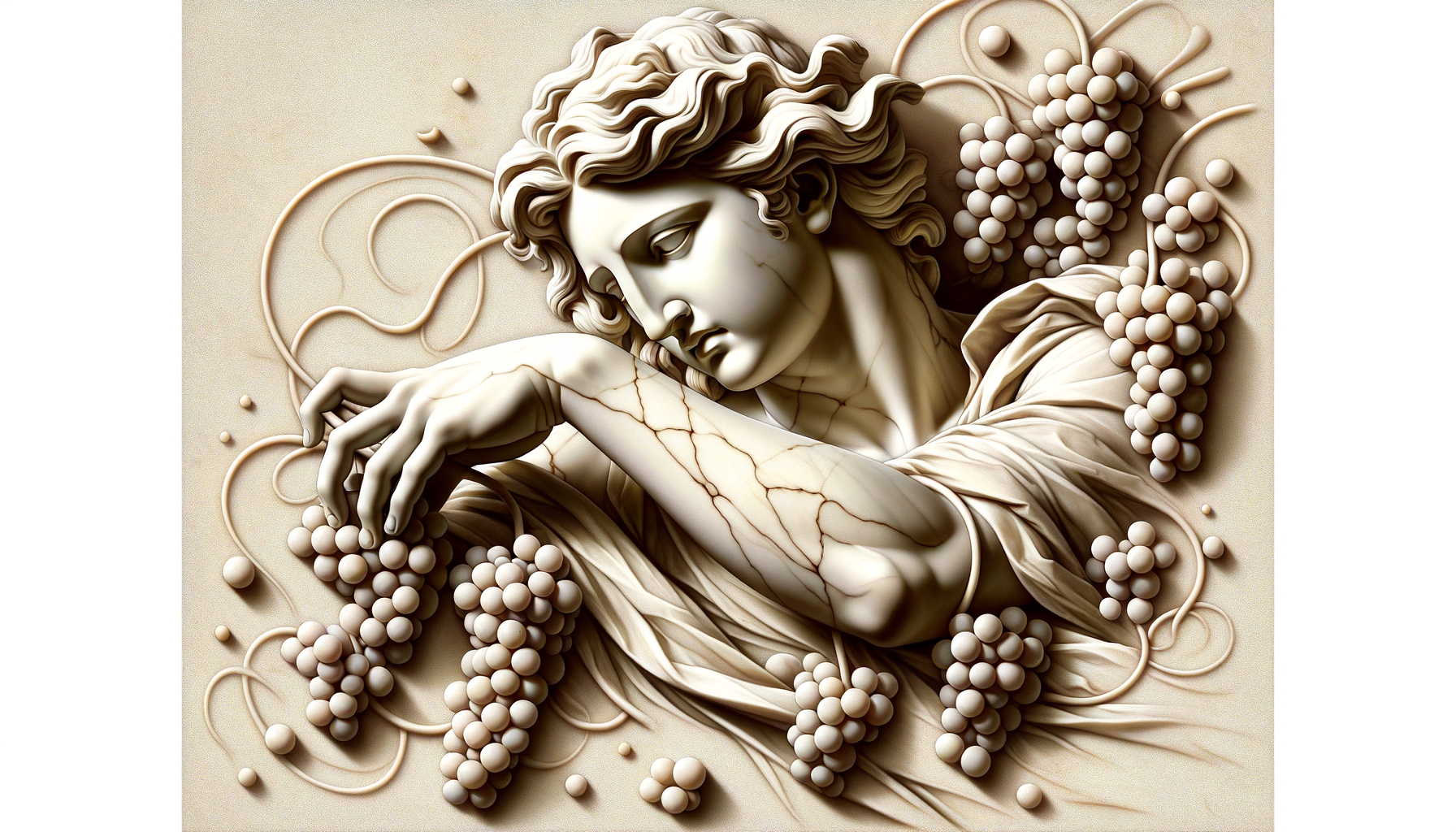By the time I turned twenty-two, I thought I had life mostly figured out. Sure, I was still scribbling poetry in spiral-bound notebooks and eating instant ramen at 2 a.m. like the world’s most broody college student, but I was also certifiably sophisticated—or so I believed. A semester studying gastronomy in France can have that effect. My passport had smudges of Bordeaux wine and butter stains from too many croissant-fueled epiphanies, and I carried an air of confidence fueled by my knack for describing tannins like they were long-lost lovers. Little did I know, all that confidence was about to shatter like a poorly-opened Champagne bottle.
Let me take you back to the summer after college graduation. Freshly minted diploma in hand, I returned to Napa Valley with dreams of snagging a coveted role managing high-profile wine tastings. In my mind, I was destined to lead rhapsodic discussions about hints of blackberry and whispers of oak, swapping knowing smiles with well-heeled visitors in cashmere cardigans. Except reality has a way of making even your best-laid plans curdle like milk left out in the sun. My first "real adult" job interview went about as smoothly as a cork splitting in two.
The Interview Catastrophe
There I was, nervously sitting at a chic vineyard’s tasting room, rehearsing phrases like “fruit-forward” and “well-structured” in my head. My interviewer, the vineyard’s head sommelier—a woman so poised she could probably balance a wine glass on one stilettos-clad foot—smiled cordially. Then the questions started, and everything unraveled.
“What would you recommend pairing with a late-harvest Riesling?” she asked, a straightforward question in the world of wine—and one I should’ve nailed. My brain, however, supplied me with a single thought: cheese. Just... cheese. “Um…maybe, like, Gouda?” I sputtered.
She raised an eyebrow. “Hard-aged Gouda or soft-ripened? Cow, goat, or sheep?”
Cue the flop sweat. “The uh…aged one. From…a cow?”
Her sigh was audible. In that moment, I realized two things: (1) I was blowing the chance to work at one of the most well-regarded vineyards in Napa, and (2) I had, quite spectacularly, overestimated my readiness to blend into this polished world.
This was just the beginning. When asked to guide her through a mock tasting, I stammered so badly that the phrase “notes of blackberry” emerged as “noises of backberry.” My attempt at explaining acidity detoured into an awkward improvisation about “it being tingly, but in a fun way.”
Needless to say, I didn’t get the job. When the rejection email came a week later, I spent the afternoon drowning my sorrows in a bowl of boxed mac ‘n’ cheese, the powdered kind. Fitting, because failure tastes a lot like sodium and regret.
The Vineyard Blues
In the aftermath of my rejection, I started questioning everything. Was I destined to become a professional disappointment? Should I leave Napa and become a barista in Portland where nobody would care whether I knew how to pronounce “terroir”? Worse, I began comparing myself to seemingly-perfect peers who had landed glamorous wine jobs or were already Instagramming photos from chic Parisian bistros while I lurked quietly in my parents’ guest room.
But here's the thing: when failure strips away your illusions of competence, you’re left with one thing—the truth. My truth? For all my passion and romanticism, I clearly had gaping holes in my knowledge. My wine education had been more theoretical than practical, and deep down, I knew I wasn’t fully prepared for what I was chasing. Like a classic first date that ends in one person ghosting, my big failure was a humbling reminder that the gap between my ideal and reality needed bridging—and that I wasn’t beyond repair.
Turning Tannin into Resilience
You can only wallow amid crushed dreams and powdered cheese for so long before you start craving something more satisfying. After that summer, I decided to invest in growth rather than sit in self-pity. Step one? Swallowing my pride—preferably not with Riesling this time—and returning to the fundamentals. I signed up for weekend seminars and certifications, learning how to discuss wine in ways that didn’t sound like I’d just read “Wine Vocabulary for Dummies.” I took notes, asked questions, and approached my career like a curious wine lover rather than someone who thought she'd already arrived.
I also started volunteering with smaller, less intimidating wineries, getting my hands dirty—sometimes literally—harvesting grapes and learning the behind-the-scenes grit of wine production. It wasn’t glamorous, but it gave me something priceless: confidence rooted in actual competence. By the following spring, I was ready to apply for jobs again, and this time, I knew that if someone asked, “What kind of cheese pairs with a late-harvest Riesling?” I could describe not one, but three different options, complete with mouthwatering adjectives.
And then there were the soft skills. My spectacular collapse in that first interview forced me to rethink how I handled pressure. I’d tried so hard to be perfect that I forgot to simply be present. It’s like going on a first date and reciting your “fun facts” so nervously that you forget to ask the other person their name. Authenticity, I realized, comes from a mixture of preparation and grounded confidence—to show up, flaws and all, and trust that you can figure things out in real time. People aren’t looking for perfection; they’re looking for connection. That principle became my anchor, and not just in vineyards, but in life.
What Failure Taught Me About Relationships
The unexpected bonus of my big failure? It made me better at relationships. Here’s why: relationships, like interviews, are unpredictable. You can prepare all you want—rehearse cute anecdotes, memorize your date’s bio from their profile—but the truth is, real connection happens in the unscripted moments. Failure taught me how to laugh at myself, how to pivot when things go sideways, and how to build trust by admitting when I don’t have all the answers.
Think of it this way: a perfect relationship isn’t built on you looking polished 24/7. It’s about being able to admit when your metaphorical cork breaks—and having a partner who says, “Don’t worry, we’ll get it out together.”
Tips for Rising Above Your Failures (Wine-Related or Not)
Let’s bottle this up (pun very much intended) into some takeaways you can actually use in your own life:
-
See failure as feedback, not fate. Messing up doesn’t mean you’re doomed forever; it’s just a signal pointing out where you need to grow. The faster you reframe failure, the faster you can rebound.
-
Invest in your skills. Whether it’s wine, woodworking, or writing, there’s always room to get better. Take classes, ask for help, devour every resource you can until the thing that once intimidated you becomes second nature.
-
Laugh at your mistakes. Seriously, “noises of backberry” still makes me cringe, but it also makes me giggle. Humor is a survival skill. Use it.
-
Leave your ego at the door. Mastery doesn’t mean knowing everything; it means being open to learning and admitting gaps with grace.
-
Embrace authenticity. In careers and love, the “perfect version” of yourself isn’t the one people connect with. Show them the genuine you.
The Comeback Is Always Sweeter
A couple years after the fateful interview, I landed a dream job at a boutique winery. During one particular tasting, a guest asked me for a Riesling pairing idea. This time, I didn’t freeze. I confidently listed off suggestions, even throwing in a little humor. (Pro tip: No one expects a sommelier to joke that Riesling pairs equally well with truffle cheese and Netflix marathons, but it works.)
The guest laughed, nodded, and said, “You really know your stuff.”
In that moment, I smiled—not just because I’d redeemed myself professionally, but because I knew the journey there had been what made me truly worthy of it. Failure, after all, can be like wine—it needs time and a little air to reveal its full complexity.




















